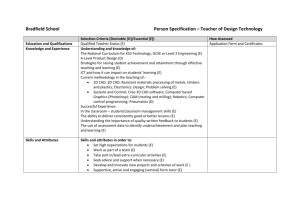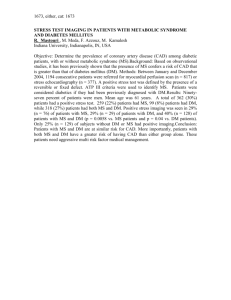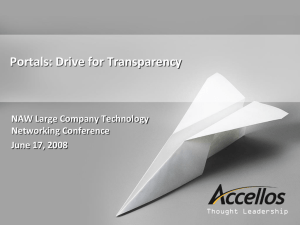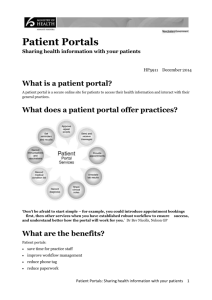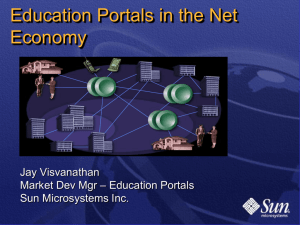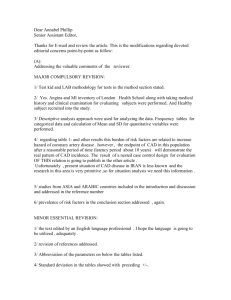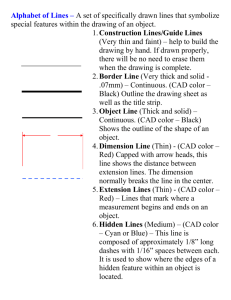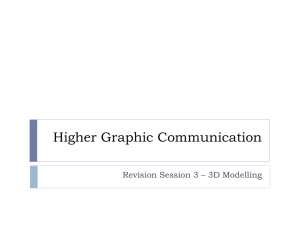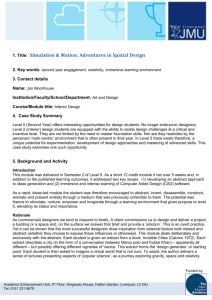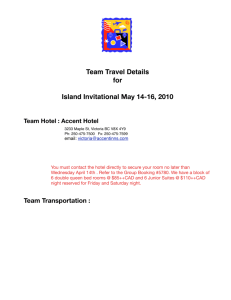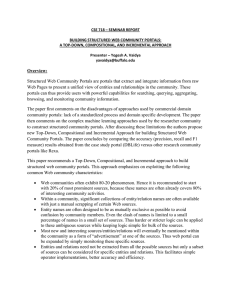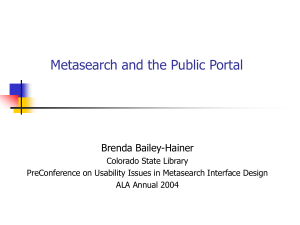MSWord - Computer Science and Engineering
advertisement
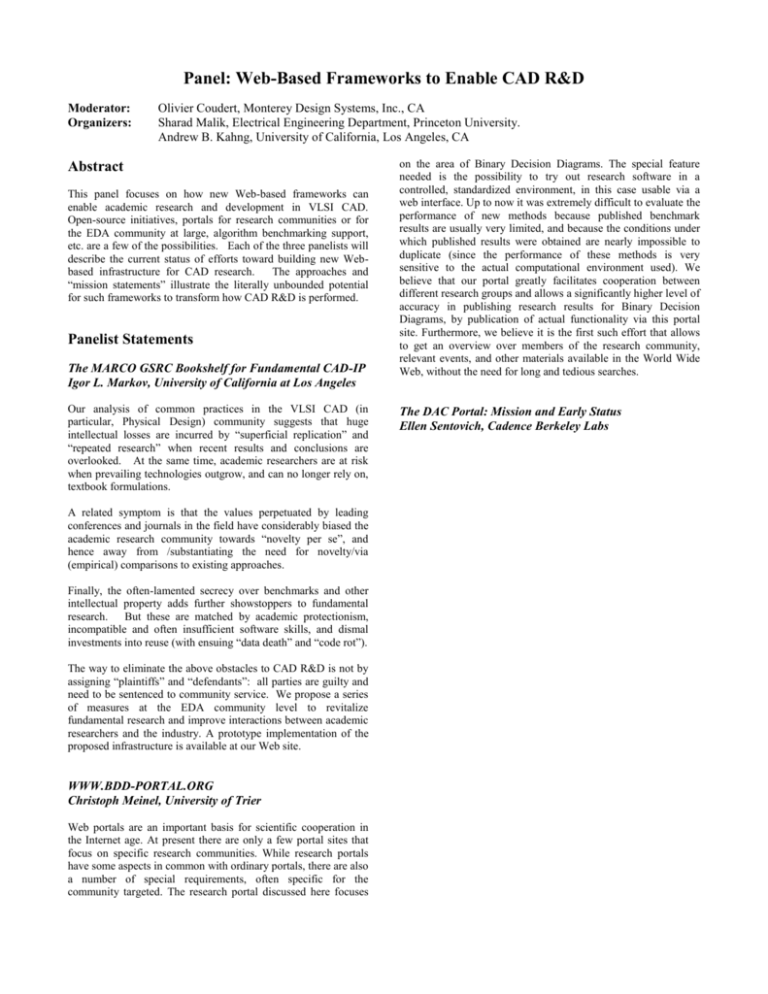
Panel: Web-Based Frameworks to Enable CAD R&D Moderator: Organizers: Olivier Coudert, Monterey Design Systems, Inc., CA Sharad Malik, Electrical Engineering Department, Princeton University. Andrew B. Kahng, University of California, Los Angeles, CA Abstract This panel focuses on how new Web-based frameworks can enable academic research and development in VLSI CAD. Open-source initiatives, portals for research communities or for the EDA community at large, algorithm benchmarking support, etc. are a few of the possibilities. Each of the three panelists will describe the current status of efforts toward building new Webbased infrastructure for CAD research. The approaches and “mission statements” illustrate the literally unbounded potential for such frameworks to transform how CAD R&D is performed. Panelist Statements The MARCO GSRC Bookshelf for Fundamental CAD-IP Igor L. Markov, University of California at Los Angeles Our analysis of common practices in the VLSI CAD (in particular, Physical Design) community suggests that huge intellectual losses are incurred by “superficial replication” and “repeated research” when recent results and conclusions are overlooked. At the same time, academic researchers are at risk when prevailing technologies outgrow, and can no longer rely on, textbook formulations. A related symptom is that the values perpetuated by leading conferences and journals in the field have considerably biased the academic research community towards “novelty per se”, and hence away from /substantiating the need for novelty/via (empirical) comparisons to existing approaches. Finally, the often-lamented secrecy over benchmarks and other intellectual property adds further showstoppers to fundamental research. But these are matched by academic protectionism, incompatible and often insufficient software skills, and dismal investments into reuse (with ensuing “data death” and “code rot”). The way to eliminate the above obstacles to CAD R&D is not by assigning “plaintiffs” and “defendants”: all parties are guilty and need to be sentenced to community service. We propose a series of measures at the EDA community level to revitalize fundamental research and improve interactions between academic researchers and the industry. A prototype implementation of the proposed infrastructure is available at our Web site. WWW.BDD-PORTAL.ORG Christoph Meinel, University of Trier Web portals are an important basis for scientific cooperation in the Internet age. At present there are only a few portal sites that focus on specific research communities. While research portals have some aspects in common with ordinary portals, there are also a number of special requirements, often specific for the community targeted. The research portal discussed here focuses on the area of Binary Decision Diagrams. The special feature needed is the possibility to try out research software in a controlled, standardized environment, in this case usable via a web interface. Up to now it was extremely difficult to evaluate the performance of new methods because published benchmark results are usually very limited, and because the conditions under which published results were obtained are nearly impossible to duplicate (since the performance of these methods is very sensitive to the actual computational environment used). We believe that our portal greatly facilitates cooperation between different research groups and allows a significantly higher level of accuracy in publishing research results for Binary Decision Diagrams, by publication of actual functionality via this portal site. Furthermore, we believe it is the first such effort that allows to get an overview over members of the research community, relevant events, and other materials available in the World Wide Web, without the need for long and tedious searches. The DAC Portal: Mission and Early Status Ellen Sentovich, Cadence Berkeley Labs
